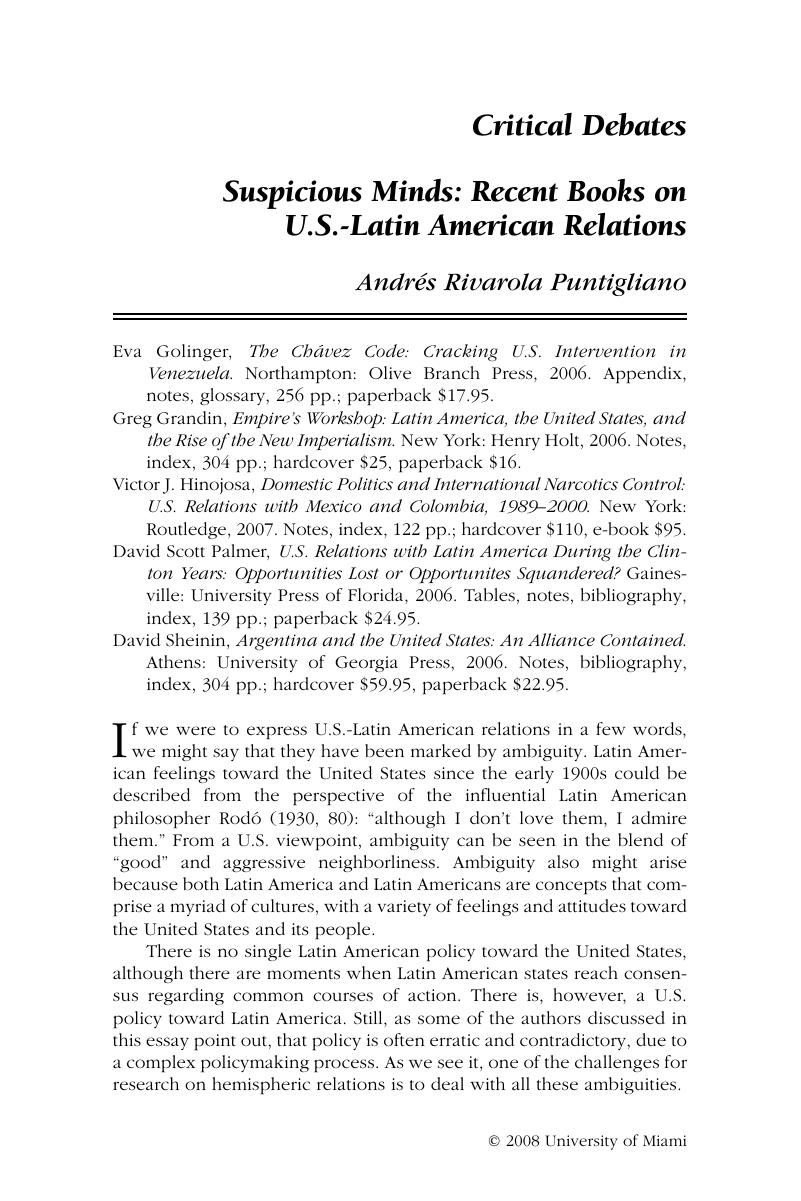Crossref Citations
This article has been cited by the following publications. This list is generated based on data provided by Crossref.
Merke, Federico
Reynoso, Diego
and
Schenoni, Luis
2018.
Foreign Policy Change in Latin America: Exploring a Middle Range Concept.
SSRN Electronic Journal,
Merke, Federico
Reynoso, Diego
and
Schenoni, Luis Leandro
2020.
Foreign Policy Change in Latin America: Exploring a Middle-Range Concept.
Latin American Research Review,
Vol. 55,
Issue. 3,
p.
413.



